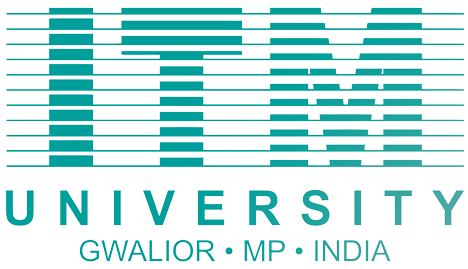Summary of National Workshop on Soil Health and Sustainable Agriculture
A National Workshop on Soil Health and Sustainable Agriculture was organized by School of Agriculture, ITM University Gwalior on April 22, 2014 in Ram Manohar Lohia Hall of VSB Block. The workshop was participated by the faculty and students of School of Agriculture. The workshop was inaugurated by Hon’ble Vice Chancellor, Prof. Yogesh Upadhyay by lamp lighting and garlanding to goddess Sarashwati. Prof. Girish pandey, Dean School of Agriculture welcomed the Vice Chancellor, Dr. R.D. Gupta (Advisor to Chancellor), Eminent Speakers, faculty member and students. Prof. Pandey while highlighting the importance of National Workshop emphasized that this workshop is being organized on the auspicious day i.e. Earth Day. He further added that objective of this workshop is to “Save the Soil for Sustainable Agriculture”.
While ingaurating the workshop, Vice Chancellor, Prof. Upadhyay emphasized that in our ancient literature “Soil is referred as Mother. It is our prime duty to save the soil to meet out the future demand of food for increasing population. Therefore, our joined effor would be to maintain the soil health for better productivity and soil fertility. I am sure that eminent experts present in the workshop will certainly come with a fruitful strategies for soil health and sustainable agriculture.
Prof. R.D. Gupta, Advisor to Chancellor told that in our religious literature, the Saints already suggested that “Soil is Infinite of life” (SOIL) and major source for our livelihood. Therefore, it is our prime duty to save the soil from further degradation.
A keynote address was presented by Prof. R.C. Tiwari, Emeritus Professor, Soil Science, BHU, Varanasi. He highlighted the different components responsible for detrimental effect on soil health. He told that we adopted high-tech farming instead of traditional farming which adversely affected the microbial activities and also detrimental to soil health. Presently our farming is totally agro-chemical based which are adversely affecting the physio-chemical and biological properties of the soil and making the soil infertile.
Prof. Ulrich Berk delivered the talk on the “Homa Farming” and highlighted the role of cosmic energy to increase the fertilty of the soil by Agnihotra. Homa Farming activate micro- organism and activity of soil flora and fauna and enriched the fertility of soil. He furher added that Homa farming is very useful in controlling the insect, pests and several diseases in plants. Prof. Ulrich Presented national and international scenario of Homa Farming.
Prof. K.N. Tiwari, EX Director International Plant Nutrient Institute, Gurgawan while discussing the scope of traditional farming applauded the contribution of Green Revolution for dependency of food problem in our country. In intensive farming, farmers used the fertilizers and agro-chemicals without soil testing which created inbalance in soil fertility due to which we are not getting yield at desired level. That’s why Integrated Plant Nutrient Management (IPNM) is only an alternative with combined use fertilizer, organic manures, bio fertilizers, crop residues and incorporation of leguminious crops in our cropping system.
Prof . R.B. Sharma, Ex Director Research, Indira Gandhi Krishi Vishwavidyalaya, Raipur while addressing the students, emphasized that imbalance use of chemical fertilizers is adversely affecting the physical properties of the soil i.e. soil structure, soil texture, soil colour, soil temperature, soil aggregate and water holding capacity and causing the poor health of soil. Therefore, integrated approach of chemical fertilizer and organic manure would help to maintain physical propertyand as well as chemical and biological properties and help to increas the soil health for sustainable agriculture.
- Recommendation:
- Policy should be made to “Save the Soil” like Save the Oil and Save the Water.
- Soil Health Card must be maintained by the farming community so that, they may be well aware about fertility status of their soil.
- Fertilizer must be recommended on the basis of soil test and crop response.
- Integrated Plant Nutrient Management may be quite useful for maintaining the soil health for sustainable agriculture and ecological balance.
- Soil testing laboratories may be well equipped and our aims should be quality oriented rather tham target oriented soil listing.
- Still farmers on not literate about the soil, therefore Soil Literacy mission may be launched so that farmers may be trained to save the soil (Mother Earth.)
- Outcome of the workshop:
- Faculty members and students were highly satisfied with the out come of the workshop and express their views that workshop was highly usefull and enriched their knowledge about Soil Health and Sustainable Agriculture. The lecture delivered by the eminent scientsts was very useful.



